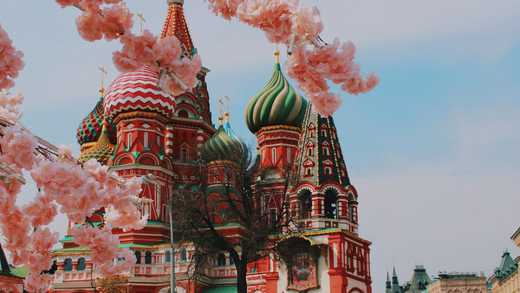How To Say Thank You In Russian: Different Ways To Say It
 Written byHubert Nagel
Written byHubert Nagel- Read time4 mins
- Comments0

In Russian, you can say ‘thank you’ using the word Спасибо. This is actually short for Спаси Бог, which means ‘God save you’. It’s important to know that there are many alternatives to this standard and very common expression. Appropriate use of these expressions depends on context and familiarity with the person you’re speaking to.
Спасибо
English meaning: God save you
Explanation: This is the standard, textbook, can’t-go-wrong way to say ‘thank you’ or ‘thanks’ in Russian. Neither the context nor the relationship of the speaker and hearer matter when using this word, much like its English equivalent.
Same as/similar to: thanks
How to say it: spaseeba
Спасибо Большое / Большое спасибо
English meaning: big thank you
Explanation: This is a slightly more emphatic and appreciative way to say the standard ‘thank you’ in Russian. Adjective can be placed either before or after спасибо.
Same as/similar to: thanks a lot
How to say it: balshoye spaseeba
Спасибо огромное / Огромное спасибо
English meaning: huge thank you
Explanation: Similar to the previous expression, this one is even more emphatic (hence the difference between ‘big’ and ‘huge’). Use this one in contexts where you’re extremely thankful for something. Once again, the adjective can be placed either before or after спасибо.
How to say it: agromnaye spaseeba
Same as/similar to: thanks heaps
Спасибочки / спасибки
English meaning: little thanks
Explanation: This is a much more casual and familiar way to thank someone - think of it as a ‘cute’ version of thank you. The -очки and -ки endings are what’s called diminutives, which is a way of making something sound small or cute.
How to say it: spaseebachki
Same as/similar to: cheers
Благодарю
English meaning: I offer you blessings
Explanation: A more traditional/old school way to thank people, commonly used by older generations of Russians.
How to say it: blagadaryu
Same as/similar to: bless you
Благодарствую
English meaning: I offer you blessings
Explanation: Very similar to the previous expression but far less common and a more dated expression.
How to say it: blagadarstvuyu
Same as/similar to: bless you
Это очень мило
English meaning: this is very nice
Explanation: Literally describes the thing being done or received as ‘very nice’. It’s just another friendly way to thank people in Russian.
How to say it: eta ochen mila
Same as/similar to: that’s very thoughtful
Вы очень добры
English meaning: you’re very kind
Explanation: The word добры literally means ‘kind’ or ‘good’, so this expression is a way of describing the good character of its recipient. Perfectly acceptable to use this with someone you don’t know who has done something for you (hence the formal Вы).
How to say it: vy ochen dabri
Same as/similar to: you’re very thoughtful
Благодарю от всей души / всего сердца
English meaning: I thank you with my whole soul / whole heart
Explanation: This is a good way of expressing deep appreciation. Very similar in effect to ‘from the bottom of my heart’ in English.
How to say it: blagadaryu at v’syey dushi
Same as/similar to: thank you from the bottom of my heart
Я очень благодарен
English meaning: I’m very thankful
Explanation: Used exactly the same way as it is in English, it’s another way to express your gratitude.
How to say it: ya ochen blagodaryen
Same as/similar to: I’m very thankful
Я ценю вашу помощь
English meaning: I appreciate your help
Explanation: Another alternative to the previous expression, this time describing how personally appreciative you are for help.
How to say it: ya tsenyu vashu pomash
Same as/similar to: I appreciate your help
Я вам очень признателен
English meaning: I am very grateful to you
Explanation: This is another way to describe how grateful or appreciative you are. Note the addition of вам, which implies being grateful to the recipient, rather than just grateful.
How to say it: ya vam ochen priznatilen
Same as/similar to: I’m very grateful
Спс
English meaning: thx
Explanation: You’ll often see this used on the Internet, on social media, chatrooms, messenger services and so on. It’s a shortened version of спасибо.
How to say it: spaseeba
Same as/similar to: thx
 Grab the link to this article
Grab the link to this article